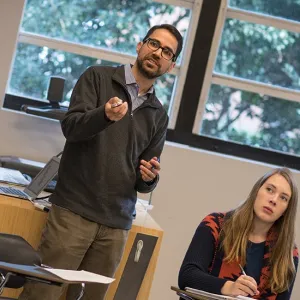Stress. Depression. Anger. Difficulty concentrating. Feelings of isolation.
All this and more can result from incidents of sexual assault, stalking, and other interpersonal violence—for the both the accuser and the accused.
At Rice University, the Office of Sexual Violence Prevention and Title IX Support offers a range of support and care to students who report an incident of assault or other violence against them, as well as to students who have been accused of perpetrating such violence.
The office’s website spells out Rice’s policies, programs, and “culture of care,” an expectation that students “treat each other with dignity and respect, including in sexual and romantic relationships.” Encouraging students who have experienced any form of interpersonal violence to seek support, the Office of Sexual Violence Prevention and Title IX Support offers confidential on-campus counseling and off-campus referrals, plus resources to assure a student’s safety and help navigating the medical, law enforcement, and legal systems. The site also provides guidance on how to help a friend and how best to support students as faculty or staff.
Rice offers accused students support as well. “If you have been accused of sexual misconduct, relationship violence, stalking, or other forms of interpersonal violence, you have support available to you. Just as your accuser has the right to have a support person, so do you,” reads the text on the page for Responding Students. Support for accused students includes a Title IX Resource Navigator, who will help a student determine next steps, provide information about the process, and accompany the accused through the student judicial process.
To help prevent students from finding themselves or their peers as either victim or accused, Rice is offering a pilot class this spring, “Critical Thinking in Sexuality,” which will explore such issues as consent, sexual assault, domestic violence, stalking, and how to intervene in dangerous situations. The university plans to make the five-week class mandatory for freshmen beginning next fall.



